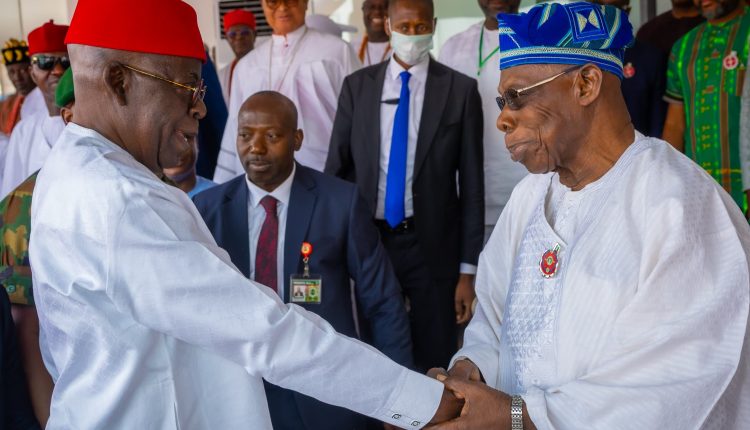Nigeria’s former President, Olusegun Obasanjo has chided President Tinubu’s government over the poor handling and implementation of the petroleum subsidy removal as well as the floating of the naira.
Obasanjo noted that, although the policies were necessary, they were improperly implemented. In a statement on Sunday by his Special Assistant on Media, Kehinde Akinyemi, Obasanjo also condemned the government’s approach to the coup in the Republic of Niger.
The ex-president said, “Today, the government has taken three decisions, two of which are necessary but wrongly implemented and have led to the impoverishment of the economy and Nigerians. These are the removal of subsidies, closing the gap between the black market and official rates of exchange and the third is dealing with a military coup in Niger Republic.
“The economy does not obey orders, not even military orders. I know that. If we get it right, in two years, we will begin to see the light beyond the tunnel. It requires a change of characteristics, attributes, and attitude by the leadership at all levels to gain the confidence and trust of investors who have alternatives.” He added.
Obasanjo emphasized the need for the government to do more to attract foreign investments noting how French oil giant, Total Energy turned to invest over $6 billion in Angola instead of Nigeria. He insisted the government has not done enough to inspire trust and confidence for investors to put their money into the economy.

“They know us more than we know ourselves. And now they are laughing at us, not taking us seriously. We have to present ourselves in such a way that we will be taken seriously. If the existing investors are disinvesting and going out of our country, how do we persuade new investors to rush in?
Proffering solutions, the former President said the country required “a 25-year socio-economic development agenda that will be generally agreed to, by the nation of all political parties and passed into law by the National Assembly with State Assembly aspects also passed into law by the State Houses of Assembly. We take up the implementation on a five-year basis. In reality, that plan will have the effect of almost a constitution. The priority in the implementation will be education for all.”


